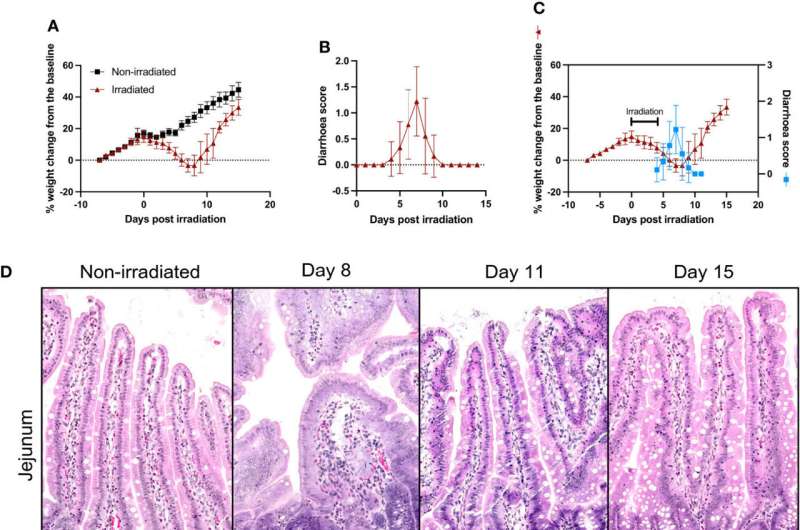Traditional Chinese medicine reduces side effect of cancer treatment

For tens of thousands of Australians who receive radiotherapy as part of their cancer treatment, mucositis is a serious side effect that may cause inflammation, ulcers, diarrhea, nausea and vomiting, abdominal pain and bloating.
Currently there is no effective treatment for mucositis, but researchers from the University of Adelaide have found that a type of traditional Chinese medicine reduces the severity of radiation-induced gastrointestinal mucositis (GIM) in rats.
This study—documented in the journal Frontiers in Oncology—outlines the potential benefits of this treatment for people who have GIM as a side effect of receiving radiotherapy to treat cancers of the stomach, abdomen and pelvis.
"While this has only been tested on rats, the findings of this research are extremely positive as they show that we may be able to provide a treatment for people who suffer from mucositis as a result of their cancer treatment," said Professor David L. Adelson, from the University of Adelaide's School of Biological Sciences, who was the corresponding author on the study.
"This is extremely important because mucositis limits the amount of therapy cancer patients can receive and significantly affects their quality of life."
In the study, which was approved by the Institutional Animal Ethics Committee of the South Australian Health Medical Research Institute (SAHMRI), rats were exposed to radiation to their abdomen.
Half of the rats received Compound Kushen Injection (CKI)—which is a type of traditional Chinese medicine—while the other half were administered a control substance. CKI has been used extensively alone or in combination with chemotherapy or radiotherapy for many years in China.
"CKI is prepared from the roots of two medicinal herbs—Kushen and Baituling—as an injectable liquid," said Professor Adelson, who is the Chair of Bioinformatics and Computational Genetics at the School of Molecular and Biomedical Science, and Zhendong Professor of Molecular Chinese Medicine and Director, Zhendong Australia–China Center for Molecular Traditional Chinese Medicine.
"The study found that the rats which received CKI to their abdomen had reduced severity of GIM symptoms compared to the rats which had the control substance. These findings build on previous studies we have done which showed CKI has significant effects on gene expression in cell lines, including genes that regulate inflammation."
Dr. Yuka Harata-Lee, Post-Doctoral Researcher from the University's School of Biological Sciences, was the lead author of the study.
More information: Yuka Harata-Lee et al, Compound Kushen injection reduces severity of radiation-induced gastrointestinal mucositis in rats, Frontiers in Oncology (2022). DOI: 10.3389/fonc.2022.929735



















